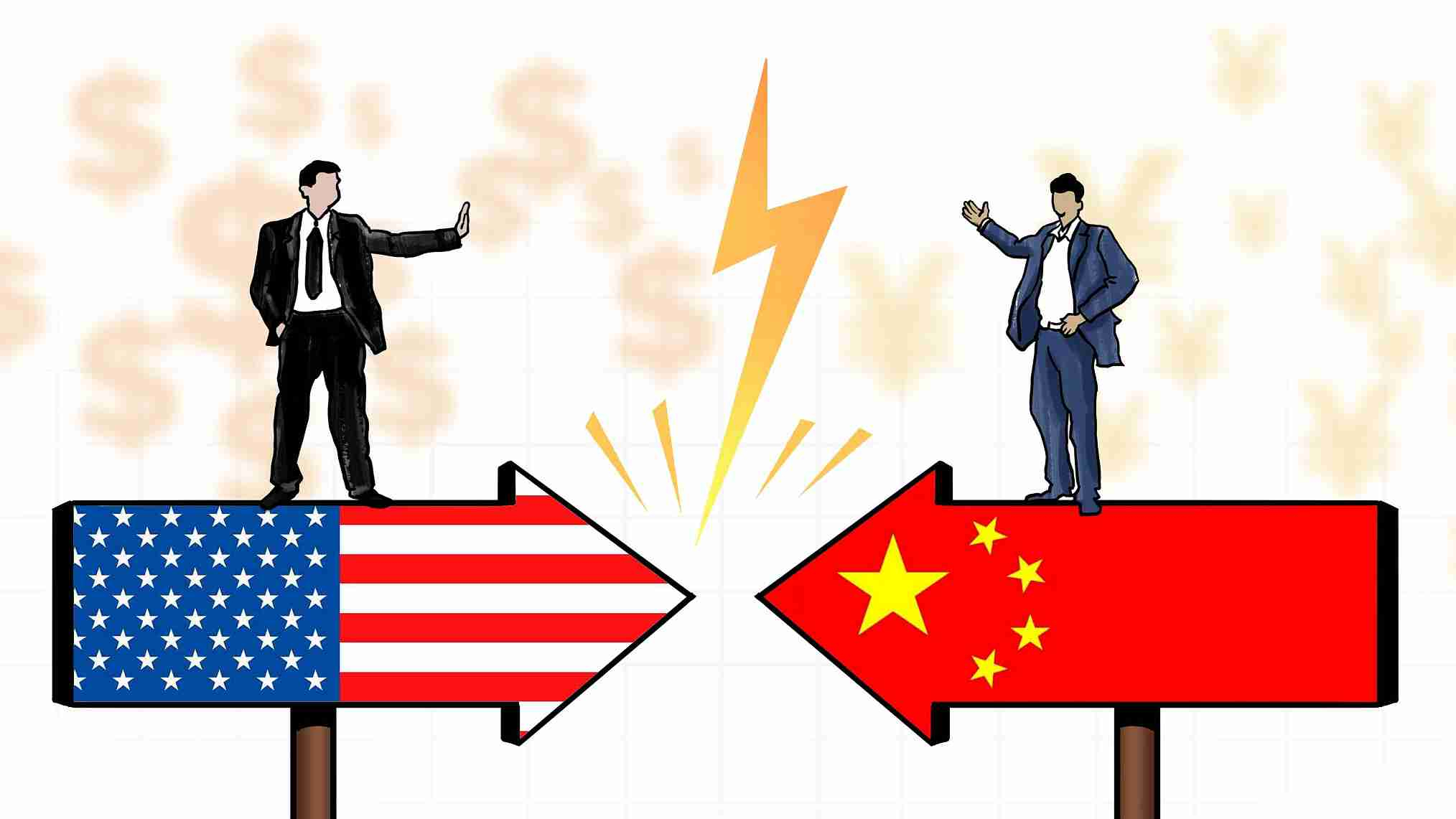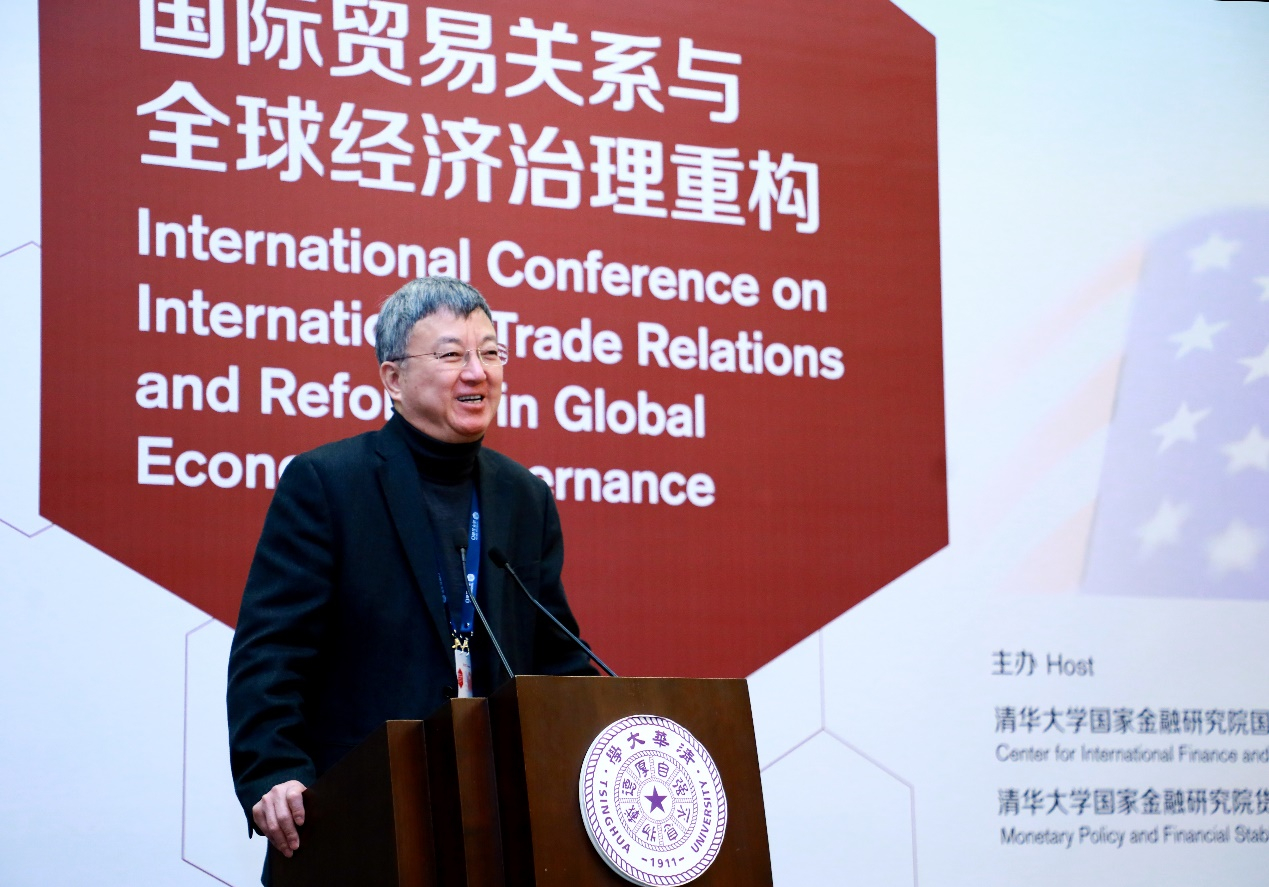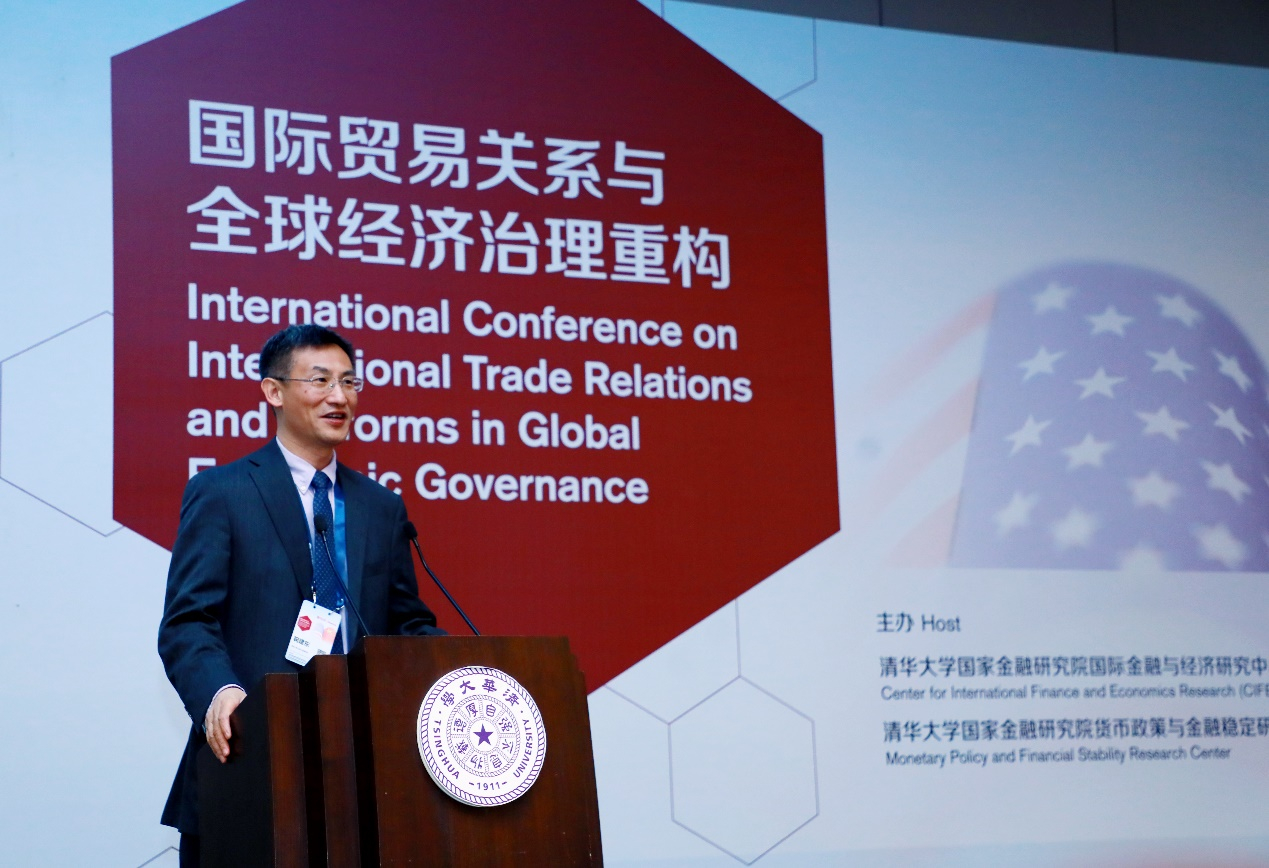
Business
18:38, 11-Dec-2018
Chinese scholars call for measures to safeguard economy amid trade war
Updated
11:21, 24-Dec-2018
By Yang Jing

After an ease in China-US tensions was scrambled by the arrest of Huawei's Chief Financial Officer Meng Wanzhou, Chinese scholars in Beijing suggested the world's second largest economy should take practical measures amid growing uncertainty, including maintaining economic growth as a top priority and promoting Asian integration.
Unprecedented impact and an unknown future
Compared with previous historical periods of trade friction, current tensions are happening in a world much more closely interlinked economically and financially, leading to a potentially massive impact on the global economy, Zhu Min, Chair of the National Institute of Financial Research (NIFR), Tsinghua University and also former Deputy Managing Director of IMF, said at an academic conference on international trade and global economic governance held in Tsinghua University over the weekend.
Despite the threat to industry chains and foreign direct investment, Zhu emphasized the impact on the financial sector and investor confidence, two areas difficult to measure and quantify.

Zhu Min, Chair of the National Institute of Financial Research (NIFR), Tsinghua University and former Deputy Managing Director of IMF, speaks at the conference. /Photo courtesy of Tsinghua University
Zhu Min, Chair of the National Institute of Financial Research (NIFR), Tsinghua University and former Deputy Managing Director of IMF, speaks at the conference. /Photo courtesy of Tsinghua University
The U.S. will continue to have a trade deficit if it does not change its domestic policies, he said, noting potential risks for trade tensions could involve other countries in the future.
While China faces continued pressure from the U.S., it also has to contend with a possible global financial crisis as a result of continuous conflicts changing the world's economic structure, Ju Jiandong, Director of Tsinghua University's Center for International Finance and Economics Research (CIFER), said at the conference, citing his latest research.
The economy as a focus for all
To tackle current tensions and future risks, Ju's research emphasized that maintaining economic growth in the next five years should be the key task for China.
"If we can keep annual economic growth above six percent for the next five years, a future crisis will not happen to China,” Ju said.

Ju Jiandong, Director of Tsinghua University's Center for International Finance and Economics Research (CIFER), speaks at the conference. / Photo courtesy of Tsinghua University
Ju Jiandong, Director of Tsinghua University's Center for International Finance and Economics Research (CIFER), speaks at the conference. / Photo courtesy of Tsinghua University
Global manufacturing, trade and consumption have forged three major value chains in the U.S., Europe and Asia. However, Asia does not have an integrated framework similar to NATO and the EU for regional governance, according to Ju's research.
Considering the massive market and population of Asia, an integrated Asian union would be impossible for other economies or companies to ignore, Ju said at the conference, listing a series of suggestions, including joining the Comprehensive and Progressive Agreement for Trans-Pacific Partnership, promoting WTO reform in a bid to connect Asian partners and finally forging an Asian union.
For the coming year, Wei Jianing, former deputy head of the Macroeconomic Research Department of the Development Research Center of China's State Council, predicted that China will be able to keep its economy stable but has to face a possible decline in exports, with front-loading activity set to come to an end.
China has launched a series of forward-looking polices this year, including cuts to reserve requirement ratios on three occasions and increasing infrastructure investment, Zhou Hao, Deputy Chair of Tsinghua NIFR, told CGTN at the conference.
If China-US trade talks do not end with the “worst result,” China's economy will be better than “worst assumption,” Zhou concluded.

SITEMAP
Copyright © 2018 CGTN. Beijing ICP prepared NO.16065310-3
Copyright © 2018 CGTN. Beijing ICP prepared NO.16065310-3